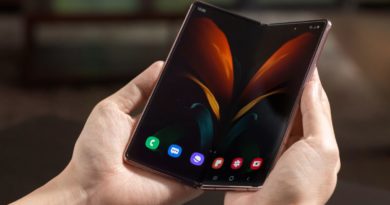LCD phones dead? Samsung to end production
Samsung is ending production of LCD screens, meaning that companies like Apple will likely move exclusively to OLED or other newer kinds of display.
A report from Reuters (via TechRadar and AppleInsider) says that Samsung Display, the part of the Korean company responsible for making screens for smartphones as well as for many other devices, will end its production of LCD displays in South Korea and China by the end of the year. It already suspended operations in October due to having a surplus of displays as a result of falling demand for TVs and phones.
Samsung Display supplies screens for many different smartphone manufacturers, including Apple’s iPhones and OnePlus’ devices like the OnePlus 7T. It has a hand in making many of the exciting display features we love possible, like high refresh rates, curved edges and transparent sections for in-screen fingerprint sensors to scan through.
While Samsung and OnePlus have been on the OLED bandwagon for some time, we’ve heard rumors that Apple will be moving to a full OLED lineup for the iPhone 12 this year. The company has been keeping at least one cheaper LCD option around for the past few years, such as the iPhone 11 or iPhone XR.
LCD (liquid crystal display) panels have become quite cheap in recent years thanks to the uptake of brighter and sharper OLED displays. But even many budget smartphones have adopted OLED screens.
With this move by Samsung Display, it’s possible that more phones can benefit from the better image quality that OLED panels can provide. Phones with OLED screens also benefit from potentially better battery life, thanks to the screens’ ability to display black by turning off pixels, rather than filtering out a backlight as LCD displays do.
One of the South Korean LCD facilities will see significant investment in the next five years as Samsung plans to convert the production line to instead make quantum dot displays, also known as QLED. Quantum dot displays (found on many Samsung TVs) not only produce excellent quality images, but are also more flexible than OLED panels, making them ideal for future foldable devices from Samsung, Apple and many other manufacturers.

